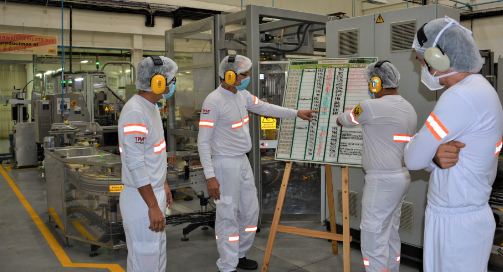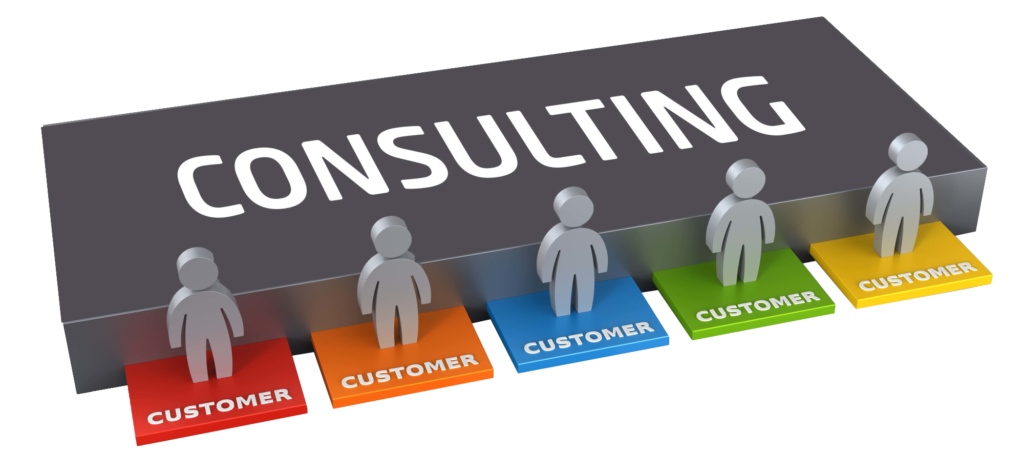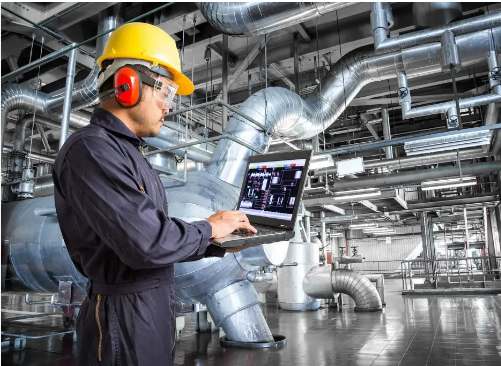
Total Productive Maintenance (TPM)
The Total Productive Maintenance (TPM) training certification course covers the essential aspects of a TPM program. It includes programs like the seven pillars of TPM, and the benefits and objectives of the TPM program. Start the course and learn about measuring performance in a TPM program, , and the types of maintenance and reliability centered maintenance
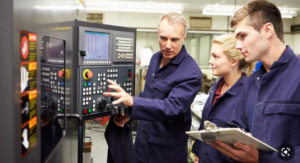
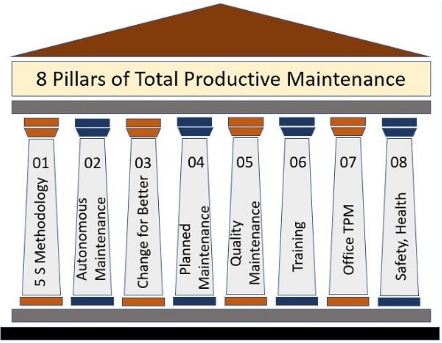
- Maintain equipment in good working condition
- Extend equipment working life by slowing deterioration
- Develop employee skills to operate and maintain equipment competently
- Ensure safe operation and servicing of equipment by employees
- Ensure equipment is able to function in all areas critical to quality
- Reduce machine downtime due to equipment maintenance and repair
- Guide the organization to select/modify equipment to match their operational needs
- Improved Productivity / Equipment Uptime
- Improved Quality
- Improved Ability to Respond to Customer Needs.
- Reducing non-conforming products
- Reducing material damage
- Reducing scrape
- Improving PPM
- Reducing raw material Inventory
- Reducing FG inventory
DAY 1
- Introduction to TPM
- What is lean
- Value added and non value added.
- Types of waste in processes.
- Lean tools and techniques
- Kaizen &GEMBA
- What is TPM.
- AM&PM
- TPM KPI’s( OEE- MTBF-MTTR…)
- TPM Deployment structure
- TPM Assessment
DAY2
- TPM Pillar 1-5S
- KAIZEN 5S
- 5S- Workshop
- TPM Pillar 2- TEAMS
- TPM Pillar 3- AM
- Workshop
- Assign Projects.
DAY3
- TPM Pillar 4- PM
- Workshop
- Kaizen Projects
- TPM Pillar 5 Effective Maintenance
- TPM Pillar 6 –Focus Improvement
- TPM KPI’s
- Quality Tools& PSP
- Review Kaizen TPM Projects
DAY4
TPM Pillar 7 –Quality Maintenance
TPM Pillar 8 -Training and education
TPM Pillar 9 -Early management
TPM Pillar 10 SHE
TPM Pillar 11 TPM –in Admistration
TPM -Spare parts inventory management
Review Kaizen TPM Projects
DAY5
Review Kaizen TPM Projects
Final TPM Assessment
A Three-days session
-This course is designed for manufacturing and plant managers, production control managers and supervisors, materials managers and analysts, manufacturing and industrial engineers & industrial managers.
